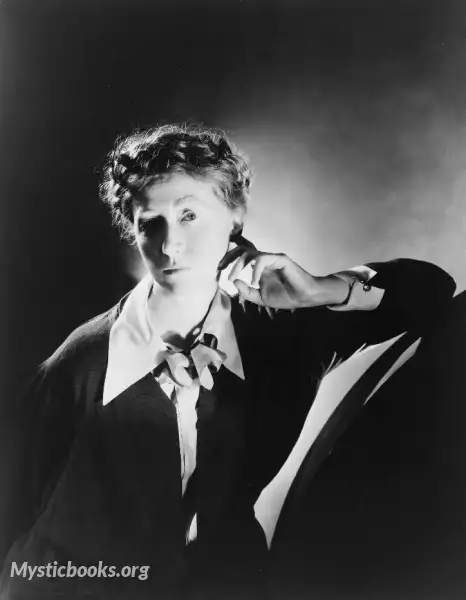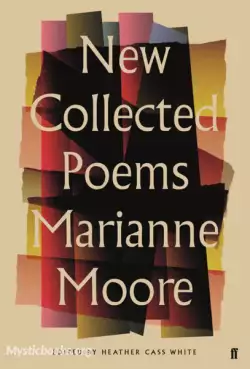
Timeline
Title
Country/Nationality
Marianne Moore
Marianne Craig Moore was an American modernist poet, critic, translator, and editor. Her poetry is noted for formal innovation, precise diction, irony, and wit.
Moore was born in Kirkwood, Missouri, in the manse of the Presbyterian church where her maternal grandfather, John Riddle Warner, served as pastor. Her father, John Milton Moore, a mechanical engineer and inventor, suffered a psychotic episode, as a consequence of which her parents separated before she was born; Moore never met him. She and her elder brother, John Warner Moore, were reared by their mother, Mary Warner Moore. The family wrote voluminous letters to one another throughout their lives, often addressing each other by playful nicknames and using a private language.
Like her mother and her elder brother, Moore remained a devoted Presbyterian, strongly influenced by her grandfather, approaching her Christian faith as a lesson in strength vindicated through trials and temptations; her poems often deal with the themes of strength and adversity. She thought "it was not possible to live without religious faith". Moore lived in the St. Louis area until she was 6. After her grandfather died in 1894, the three stayed with relatives near Pittsburgh for two years, then moved to Carlisle, Pennsylvania, where her mother found employment teaching English in a private girls school.
Moore entered Bryn Mawr College in 1905. She was graduated four years later with an A.B., having majored in history, economics, and political science. The poet H.D. was among her classmates during their freshman year. At Bryn Mawr, Moore started writing short stories and poems for Tipyn O'Bob, the campus literary magazine, and decided to become a writer. After graduation, she worked briefly at Melvil Dewey's Lake Placid Club, then taught business subjects at the Carlisle Indian Industrial School from 1911 to 1914.
Moore's first professionally published poems appeared in The Egoist and Poetry in the spring of 1915. Harriet Monroe, the editor of the latter, would describe them in her biography as possessing "an elliptically musical profundity".
In 1916, Moore moved with her mother to Chatham, New Jersey, a community with commuting transportation to Manhattan. Two years later, the two moved to New York City's Greenwich Village, where Moore socialized with many avant-garde artists, especially those associated with Others magazine. The innovative poems she was writing at that time received high praise from Ezra Pound, William Carlos Williams, H.D., T. S. Eliot, and later, Wallace Stevens.
Moore's first book, Poems, was published without her permission in 1921 by the Imagist poet H.D. and H.D.'s partner, the British novelist Bryher. Moore's later poetry shows some influence from the Imagists' principles.
Her second book, Observations, won the Dial Award in 1924. She worked part-time as a librarian during these years; then from 1925 to 1929, she edited The Dial magazine, a literary and cultural journal. This position in the literary and arts community extended her influence as an arbiter of modernist taste; much later, she encouraged promising young poets, including Elizabeth Bishop, Allen Ginsberg, John Ashbery, and James Merrill. When The Dial ceased publication in 1929, she moved to 260 Cumberland Street in the Fort Greene neighborhood of Brooklyn, where she remained for thirty-six years. She continued to write while caring for her ailing mother, who died in 1947. For nine years before and after her mother's death, Moore translated the Fables of La Fontaine.
Moore's most famous poem is perhaps the one entitled, appropriately, "Poetry", in which she hopes for poets who can produce "imaginary gardens with real toads in them". It also expressed her idea that meter, or anything else that claims the exclusive title "poetry", is not so important as delight in language and precise, heartfelt expression in any form. Moore's meter was radically separate from the English tradition; writing her syllabic poems after the advent of free verse, she was encouraged thereby to try previously unusual meters.
Books by Marianne Moore

Poems of Marianne Moore
In 1921, American poet H.D. collected and published a selection of previously published poems by Marianne Moore. Although this angered Moore, as it was entirely unauthorized, she later accepted the edition as well made and used it as the basis for he...